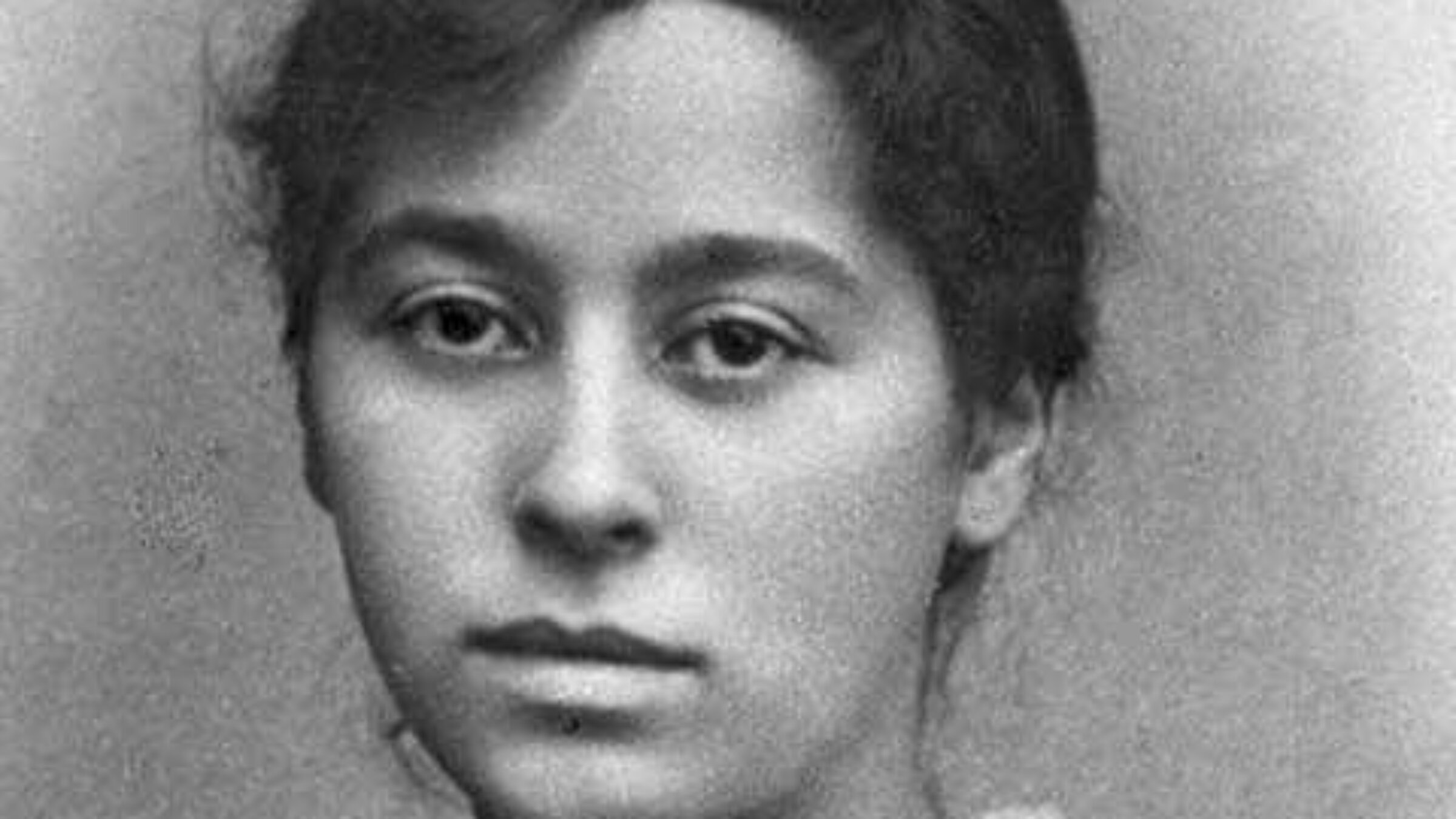Esteemed by Oscar Wilde, England’s ‘greatest Jewess’ may finally be getting her due
A recent acquisition by Cambridge University will burnish the reputation of Victorian Jewish writer Amy Levy

The author Amy Levy. Photo by Wikimedia Commons
For book lovers, the news that Cambridge University has acquired a previously sealed personal archive of Amy Levy, a Victorian Jewish novelist and poet who won praise from literary notables of her era, is a cause for celebration.
Levy’s 1888 novel Reuben Sachs is an exasperated, yet affectionate, look at English Jewish middle-class life. Levy, the daughter of a prosperous stockbroker, knew whereof she spoke. At the British Library in London, Levy rubbed elbows with Eleanor Marx, daughter of the author of Das Kapital.
In her own way, Levy, who died by suicide at the age of 27, was an anti-capitalist, although not because she favored Jewish spirituality instead. Her family only occasionally attended the West London Synagogue of British Jews, a Reform congregation located on Upper Berkeley Street. Instead of finding inspiration in Jewish ritual, Levy, in her 1886 essay, “Middle-Class Jewish Women of To-Day,” printed in The Jewish Chronicle, noted her type of mishpocheh expected daughters to marry and raise children.
Anyone interested in something beyond marriage and family, Levy wrote, must go “beyond the tribal limits” or more or less flee the family home. Levy admiringly cited examples of fellow English Jews who had become independent overachievers in their fields: Helen Zimmern, who translated Nietzsche and wrote on Schopenhauer; Hertha Ayrton, an electrical engineer, mathematician and physicist; and Mathilde (born Cohen) Blind, a poet.
The eponymous hero of Levy’s Reuben Sachs debates a fellow Jew who is dismayed by materialistic, success-obsessed capitalists, Jewish or not. Sachs retorts that despite a “cruel” history, Jewish people have finally “shamed the nations into respect” due to “self-restraint, our self-respect, our industry, our power of endurance, our love of race, home, and kindred.”
Sachs confesses that he is “exceedingly fond of [his] people.” Jews may disappear through assimilation, but the “strange, strong instinct which has held us so long together is not a thing easily eradicated.” He even foresees a form of post-Jewish reunion of Yiddishkeit: “Jew will gravitate to Jew, though each may call himself by another name.”
Levy’s reflections were interlarded with other opinions about Jews that reflected some of the prejudices of her time, about the supposed ugliness of Ashkenazi Jews, compared to the reputed noble beauty of Sephardim (reference is made in the novel to the “the ill-made sons and daughters of Shem”).
But in Reuben Sachs, she also expressed delight at the sheer gusto of Jewish life in London, writing of “excellent” bargain-hunting Jewish shoppers at Whiteley’s department store in Bayswater who radiated a “whole-hearted enjoyment that was good to see.”
Despite such enthusiasm, the UK-based newspaper The Jewish World kvetched that Levy “apparently delights in the task of persuading the general public that her own kith and kin are the most hideous types of vulgarity.” The critic added with dismay that Levy proudly supported “anti-Semitic theories of the clannishness of her people and the tribalism of their religion.”
Closer to the truth was Levy’s own explanation, published in the essay “The Jew in Fiction,” two years before the publication of Reuben Sachs, that she felt that Jewish characters should be depicted as well-rounded humans with good and less admirable aspects. For Levy, Dickens, Thackeray, and even George Eliot’s Daniel Deronda were unacceptably “superficial.” Levy saw the Jews in Deronda as improbably noble, calling them a “little group of enthusiasts” with their “yearnings after the Holy Land.”
Her sometimes ironic dismissal of Jewish beliefs and concerns were summed up in an obituary that appeared in an 1890 edition of Woman’s World, written by its editor, Oscar Wilde, who had published her articles. Wilde observed that Levy’s “family was Jewish,” but as she matured, she “gradually ceased to hold the orthodox doctrines of her nation, retaining, however, a strong race feeling.”
Levy was also a self-assertive urban dweller; her hometown of London was an essential part of her life. In her tongue-in-cheek “Ballade of an Omnibus,” she celebrated her disobedience of the social convention that women should remain in the sheltered interior of London city buses; Levy preferred to delight in views from the top deck of vehicles (“When summer comes, I mount in state/The topmost summit.”)
Literary historian Carolyn Lake has suggested that Levy may have been concealing a lesbian identity, hypothesizing that Levy’s tragic destiny may have been partly due to the pressure of being marginalized in three groups, as a Jewish woman who did not conform to a heterosexual orientation.
In 1926, the historian Beth Zion (Roochel) Lask, author of The Jews in England: A History For Young People read an essay before the Jewish Historical Society of England arguing that Levy was the “greatest Jewess England has thus far produced.”
Levy’s stout-hearted resolve to innovate pursued her even posthumously; she specified in her will that she should be the first Jewish woman to be cremated in England. Her family respected her wishes in this respect, just as the fact that personal papers have survived to be purchased by Cambridge University is partly due to the faith of the Levy family in the enduring value of her work. The Cambridge archive, when fully examined by researchers, may help to change Levy’s reputation from writer appreciated by comparatively few mavens to a literary Lazarus with a wide-ranging readership that she has long deserved.

















